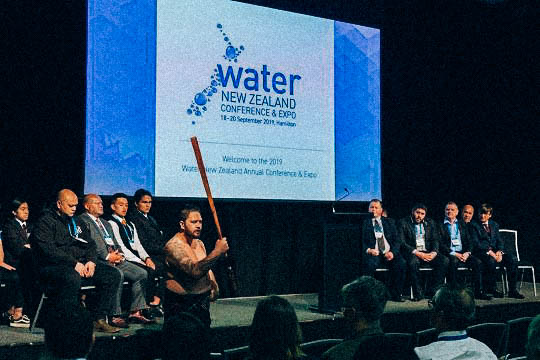Creating transformation from crisis: a message from Tony
From our CEO, Professor Tony Wong:
I recently presented one of the international keynotes at the annual Water New Zealand Conference and Expo held in Hamilton, NZ, in late September. I used this platform to implore our colleagues in New Zealand to not waste the opportunity for transformative change in the country’s water sector, brought about by the Havelock North incident.

Indeed, the major focus of the three-day conference was the NZ Government’s reform agenda, springing from the government’s ongoing Three Waters review. This review is examining how to improve the regulation and supply arrangements for drinking water, wastewater and stormwater (three waters)— akin to our integrated urban water management.
The catalyst for this reform is linked to the Havelock North Inquiry into drinking water contamination leading to the campylobacter outbreak in 2016 that resulted in up to 5,500 people falling ill and four people dying. Concurrent with this reform agenda is the NZ Government’s Essential Freshwater program, primarily focused on protecting NZ’s freshwater ecosystem.
I focused my keynote, titled Catalyst of change, on seizing the opportunity for transformative change that now presents itself.
We can use the ‘city-state continuum’ as the backdrop to reflect on how the urban water system evolved in many of our cites over time—from Water Supply City to Drained City. A crisis of some form has always catalysed the progression of each of these stages of city water system evolution: from the initial emphasis on access to clean water supply often defining sites for settlements, to the construction of city sewerage systems to overcome public health crisis, and to stormwater drainage systems to open up more developable land and overcome local flooding.
In recent times, degrading urban waterway health and water resource limitations have further catalysed many of our cities to transition to new states. This is where perhaps NZ cities are at: the Essential Freshwater program and the Three Waters review are creating the enabling environment for NZ cities to become Water Cycle Cities—or if we are bold and opportunistic, to become Water Sensitive Cities.
It was Australia’s Millennium Drought—a water supply crisis of a different kind—which led the then National Water Commission of Australia to contemplate the future role of the urban water sector in a 2011 publication titled, Urban water in Australia: future directions. This document linked the role of the urban water sector to the liveability of cities through greater levels of participation and integration of urban water services, urban water cycle management, urban planning and water sensitive urban design.
The drought was the catalyst for Australia’s strategy to diversify our sources of water supply. And the floods that broke the drought got us to understand that the vulnerability of cities to climatic extreme can only be addressed through a total water cycle approach. These events are compounded by increasing urban heat—all of which are affecting the community health and wellbeing that are fundamental to the liveability of our cities.
The convergence of these crises catalysed many of the water sensitive cities practices we now see in Australian cities.
NZ water utilities can enact many initiatives today to pave the way for transition. In fact, the International WaterCentre’s Mark Pascoe, in his presentation at a conference thought leadership session, referred to the CRCWSC think tank piece titled, Water Utilities of the Future, to highlight the many initiatives that water utilities can take to transition to the changing role of the water sector.
Our think tank piece documents 19 Australian case studies where water utilities are playing a leadership role in broader city planning, through their advocacy and ‘activism’, whole-of-system perspective, technical excellence and practice innovation, and investment in community engagement and industry capability. While these are Australian examples, they address global challenges. Contexts may be different in other countries, but the lessons are relevant and do serve to offer motivation for actions.
What are my thoughts on the New Zealand situation now I’m back? It does seem like the stars are aligned for transformative change over there, although much of the discussions at the conference related to securing safe drinking water—understandably so when we consider the public health implication of the Havelock North incident.
